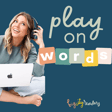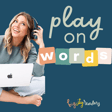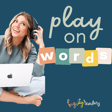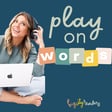
Ep. 60 Do Babies Need Toys? How Much Should I Play With My Baby? OT Answers on Attachment, Sleep, and Play Routines with Brooke Boruff @InfantInsights
In this jam-packed episode, Beth is joined by Brooke Boruff, a pediatric occupational therapist and founder of Infant Insights, to tackle all your biggest questions about baby and toddler development. From bonding and soothing to choosing the right preschool, Brooke’s expert advice will leave you feeling informed, confident, and ready to embrace this stage of parenting.
Here’s what we cover:
🎁 Do babies really need toys to thrive? (Hint: Less is more!)
🍼 Is it normal for a baby to roll at 3 weeks? What’s typical, and when should you seek support?
💡 What is an OT, and how can they help with everything from motor skills and sensory needs to bonding and beyond?
💬 Attachment: Can you be too attached? How much should I play with my baby?
😴 Sleep and soothing strategies: How to bond while helping your baby self-soothe.
🍼 Lactation, feeding, and how they connect to development.
📚 Flat heads, tummy time, and how to promote healthy growth while easing common concerns.
🏫 Choosing the right preschool: structured vs. unstructured, play-based learning, and what to look for when making your decision.
📖 Children’s books that are both adorable and thought-provoking—yes, even about death and the big questions in life.
This episode is packed with expert advice and practical tips to support your parenting journey, all while reminding you that you’re doing an amazing job.
Links mentioned in this episode:
👉 Connect with Brooke: Infant Insights on Instagram
👉 My Baby and Toddler Courses: bigcityreaders.com
👉 Send me your questions or thoughts on Instagram: @bigcityreaders
Don’t forget to subscribe, share this episode with a friend, and leave a review—it helps more families find the show! ❤️



